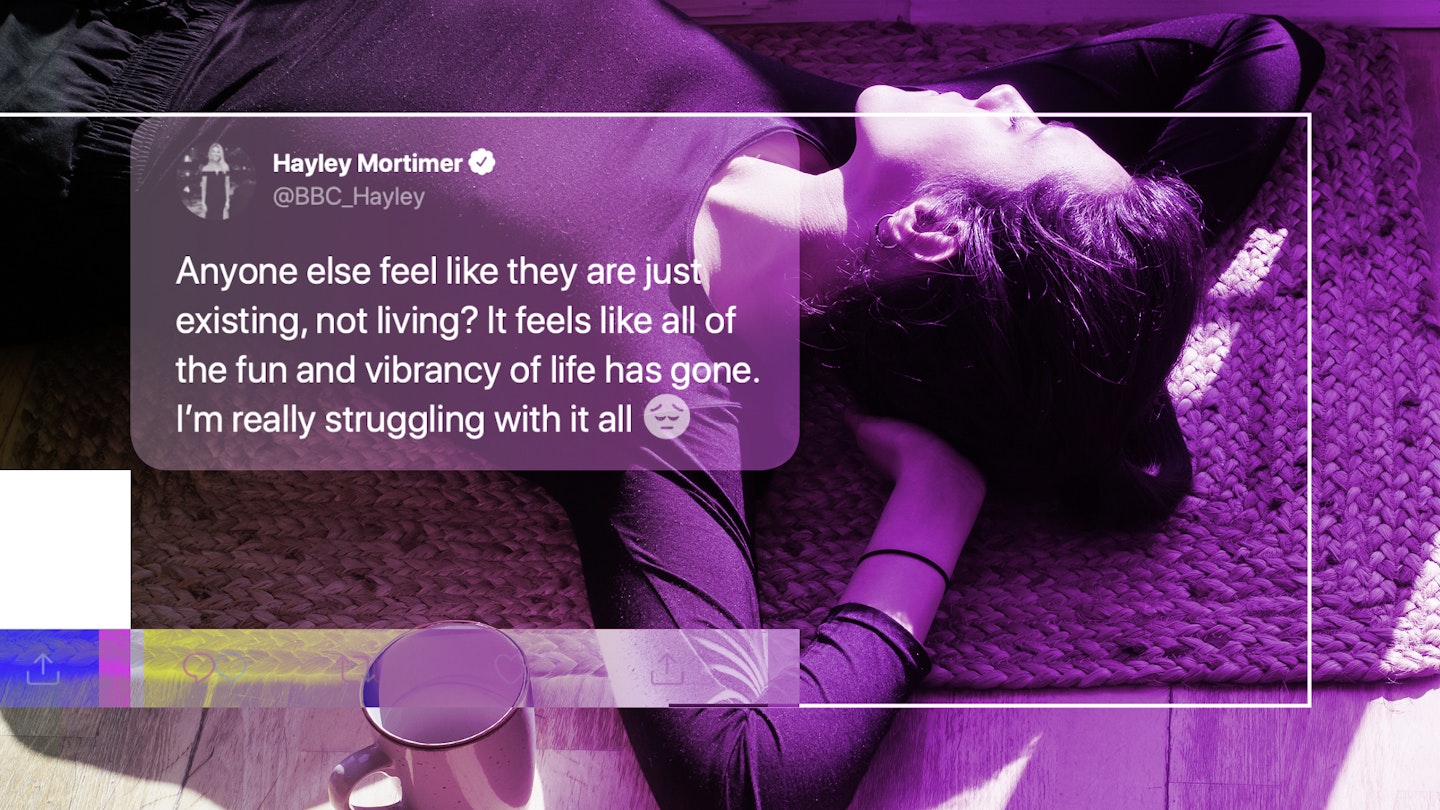'Does anyone else feel like they are just existing, not living? It feels like all of the fun and vibrancy of life has gone. I’m really struggling with it all. '
When I posted those three sentences on Twitter I had no idea that my words would resonate with so many. It turns out a lot of people feel like they are in a state of lockdown purgatory too.
At the last count, the post had been viewed six million times. Thousands have replied and I’ve received hundreds of private messages and emails.
There has always been a twinge of guilt when I feel sad about how my life has changed since the middle of March because I know that there are people who have had a much tougher time than I have over the last six months. All I’ve been asked to do is accept the mild inconvenience of not being able to socialise as much, it’s the least I could do, what harm could it possibly bring?
But being alone has always been my number one fear. I’ve made a conscious effort to surround myself with people and fill my spare time with fun.
I have a job, a job I love, working as a political reporter for the BBC, mostly covering the pandemic. But I live alone, I am single and many of my friends live in different parts of the country. My “new normal” has become a tedious cycle of eat, sleep, work, repeat, with little to look forward to and limits around what I can do to pass the free time.
One Twitter follower summed it up brilliantly – “Living is having choices and options. When our ability to make choices is taken away, that is existing, and in today’s world, our choices are limited.”
We are locked in limbo – unable to make plans for the months ahead. Stripped of spontaneity and prevented from seeing the people and doing the things we love.
It’s not about giving up the luxuries - it is about missing those vibrant moments with family and friends that make life worth living. I am sad for the memories missed through cancelled birthday parties, festivals, holidays, hen dos and weddings.
I am sad that I can no longer try on clothes in my favourite shop with my Mum, watch football with my Dad at White Hart Lane or stay overnight with my friends. I miss the excitement of the theatre, the morning after tinnitus from a concert, the sore cheeks from live comedy. I miss dancing in a sweaty nightclub, bonding with a girl I’ll never see again in the toilets and singing Oasis songs with strangers in the kebab shop.
I miss the panic over whether I’ve entered the right details before clicking the confirm button on the EasyJet website. I miss sending pictures on the group chat of my holiday outfits and deciding who is going to pack the hair straighteners. I miss encounters outside of the government’s definition of an “established relationship” and the debrief with friends afterwards.
But most of all I miss reminiscing on all of those shared memories, of which there have been so few in the last six months.
My idea of fun might be your worst nightmare, but while the experiences that bring each of us joy may differ, they all have one thing in common.
The experiences we share with others are what connects us. They provide meaning, purpose and joy.
Since posting my thoughts on Twitter, I no longer feel a sense of shame for feeling sad that my life is on hold and will continue to talk about it. It’s not helpful to be met with statements like “get a grip” or worse still, mentions of a war that none of us, or our living relatives, have fought in.
It’s important to recognise that we are living in an age of necessary sacrifice and that our lives have changed. And while people of all ages are suffering the consequences of the current Covid-19 policies, the mental health of young people has been disproportionately affected during this crisis. This is a conversation we need to have.
